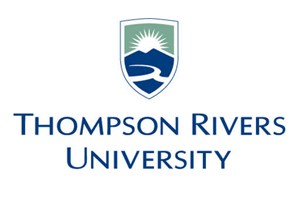 Canada
CanadaCanada is a country of diverse geography, and there is much to experience in its great outdoors: from the lush coastline of British Columbia, the majestic Rocky Mountains of Alberta, the big skies of the prairies, to the 'maple sugar country' in the Great Lakes and St. Lawrence and the rugged hills and picturesque coastline of the Atlantic provinces.
Canada has a variety of tourist destinations. There are many museums, seasonal festivals, and exciting nightlife that each province and territory has to offer. Canada also has a beautiful countryside which means that most outdoor recreational activities are very popular here, whether it be skiing, cycling, hiking, camping, sightseeing, or even ice sailing.
There are many climatic variations in Canada, ranging from the permanently frozen ice caps north of the 70th parallel to the lush vegetation of British Columbia's west coast. On the whole, however, Canada has four very distinct seasons, particularly in the more populated regions along the US border. Daytime summer temperatures can rise to 35°C and higher, while lows of -25°C are not uncommon in winter. More moderate temperatures are the norm in spring and fall.
As a country of immigrants, Canada has both a tradition and policy of encouraging multicultural diversity.
Almost all of the world's ethnic groups are represented in Canada. This brings to Canada the most ethnic foods and recreational activities associated with specific cultures. Clubs, informal clubs and associations representing a multitude of ethnic backgrounds are also easily accessible.
Why Study In Canada
- Canada's universities and colleges are world-renowned for their high standards, safe campuses, and educational excellence. They are at the forefront of the information technology revolution and ensure that their students are equipped for the 21st century.
- Tuition and living expenses for an American student at a Canadian school are very affordable. And Americans are eligible for U.S. government student loans at most Canadian universities.
- The wide choice of schools in Canada includes major research institutions as well as small liberal arts schools and a full range of undergraduate, graduate and professional degree programs. Most Canadian schools are within 100 miles of the U.S.-Canada border and very accessible.
- A degree from a Canadian university is considered equivalent to an American degree. Many U.S. companies actively recruit on Canadian campus, and many students with a Canadian undergraduate degree are enrolled in top graduate programs throughout the U.S.
Education System
The Canadian education system encompasses both publicly-funded and private schools, from kindergarten through to university. Education is a provincial responsibility under the Canadian constitution, which means there are significant differences between the education systems of the different provinces. However, standards across the country are uniformly high.
| First Level (Age 6-11) |
| Second Level (Age 12-17) Junior High Senior High |
| Third Level (Age 18-27) Bachelor and First Professional Degree Master Doctorate |
Budget Expenses
Tuition Fees: C$7,100/academic year (8 months)
Living Cost: C$8,100/academic year



